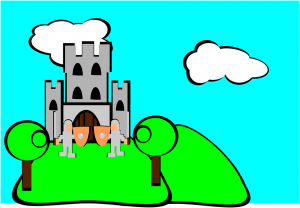
Nursery Rhyme’s have been taught to children for centuries. Humpty Dumpty and london bridge lyrics being one of the most popular. It became famous through Lewis Caroll’s “Alice Through the Looking Glass” back in 1810, though the rhyme has been around even longer than that. Many theories have suggested that it was a cannon during the English civil war or that “Humpty Dumpty” was just referring to a rather large person, but no one is sure as to who it was referring too.
The nursery rhyme has a lot to offer when it comes to teaching children rhythm and rhyming. It can also be more interactive by having the children clapping along to the syllables to help them learn to break down words. The catchy tune to the nursery rhyme can also help exercise the child’s memory skills through wanting to repeatedly hear it and sing it. For infants, the use of nursery rhymes helps babies develop those emotions. Nursery Rhymes when sung to babies are often in a fun, happy, interactive way. Natural responses to a parent singing a rhyme would be baby smiling, clapping, and cooing as ways of interacting with their parent, and expressing themselves.
Some topics that help the older children explore the nursery rhyme would be asking things like “What are knights?”, “Why weren’t they able to put him back together?”, and “Why was he sitting on a wall when he was an egg?” The topics and questions are endless for children that can all be turned into a learning opportunity. Starting off with the vague history of the rhyme would be a great start to help your child start to critically think. “No one said he was an egg, what do you think he was?” It can also be an opportunity to help your child problem solves. “How would you have tried to fix him?” or “How would you have stopped him from falling?”
Nursery Rhymes can be used in education today in music class by helping the children keep the beat of the rhyme. It can also be used in their gen. ed. setting to teach the children about words that sound alike (rhymes) and how to apply them in the English language. Nursery Rhymes would make a great introduction to the exposure of poetry for students as well. As a parent, using the nursery rhyme for small children and babies will help them interact and express themselves more upon hearing it. The clapping will help sharpen those psycho-motor skills, and the smiling and giggling will help them find their voice and express themselves. For older children saying nursery rhymes with your child will create an interactive and bonding time all the while your child learns and memorizes a fun little saying, and remember every opportunity is a learning experience so after saying the rhyme together always ask question to get your child to think and expand they perspective.